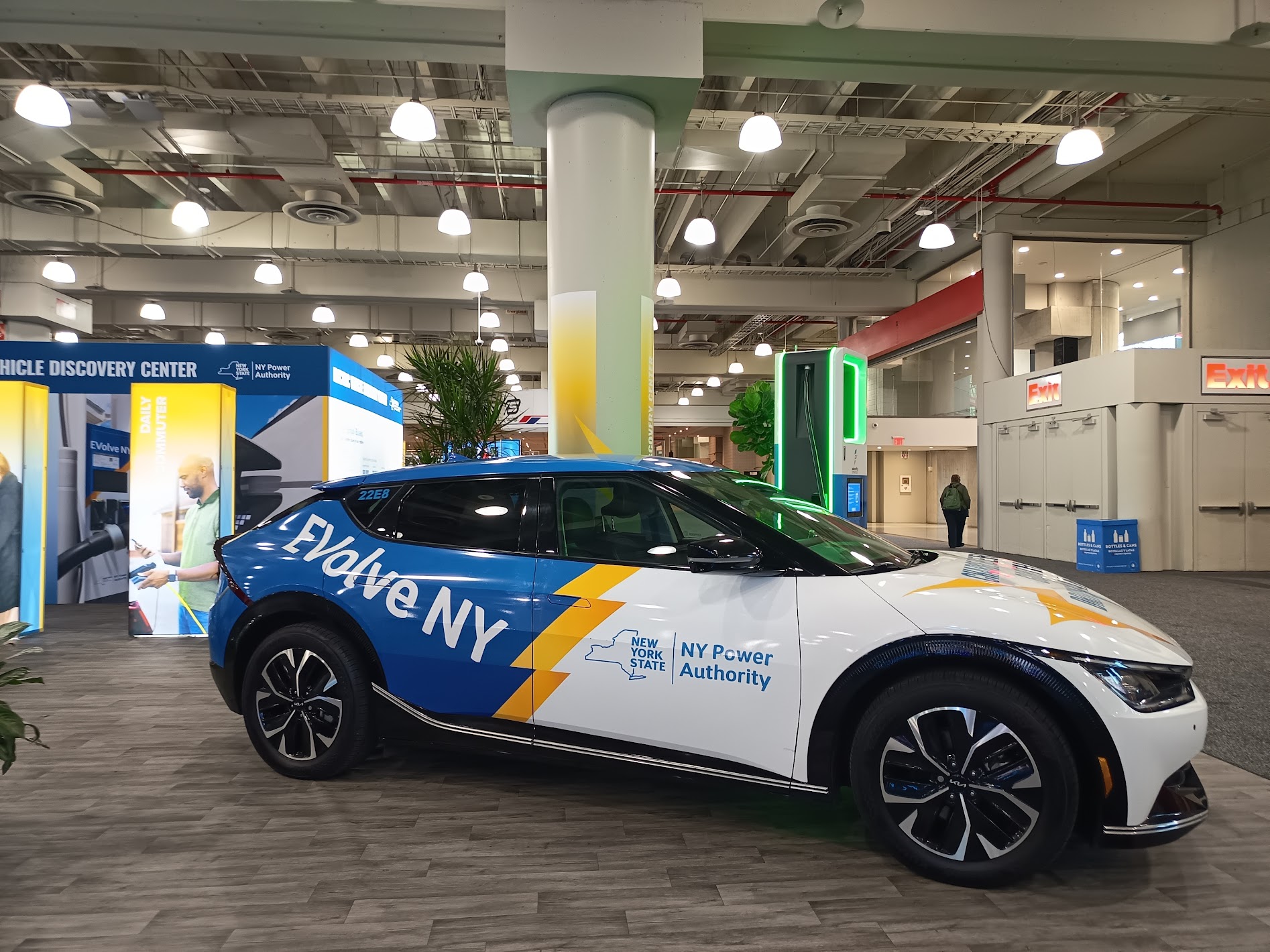Sign up for CleanTechnica’s Weekly Substack for Zach and Scott’s in-depth analyses and high level summaries, sign up for our daily newsletter, and/or follow us on Google News!
Day One of the New York International Auto Show (NIAS) Industry Days opened with a forum called “Evaluating the Shifting EV Landscape.” It gathered many top U.S. automotive executives, analysts, and policy experts to talk about trends in the American EV landscape.
The forum was moderated by automotive industry research group J.D. Power. The experts came together to openly discuss the subject of vehicle electrification, but oftentimes politely lambasted the current tariffs imposed by the economic managers of the Trump administration. The group was doing this by addressing the complex mix of market realities, regulatory pressures, and shifting consumer sentiment.
One message was clear, though: like it or not, EVs are going to stay.
Since the discussion was dominated by the impact of new U.S. tariffs but no one actually discussed in detail this particularly polarizing topic, it felt strangely taboo and unsafe to dwell too much on tariffs.
“It has been paused, has it not?” one executive told CleanTechnica.
But Mike Stanton, president of the National Automobile Dealers Association (NADA), said “now is the time to buy.” Buy EVs, he meant, as the $7,500 federal income tax credit currently pegged on EVs will be reduced to nil if President Donald Trump’s economic team gets it way. He also revealed that there are over 3 million still tariff-free EVs available on dealer lots in the USA.
Paused Tariffs Not Welcome
Trump’s tariffs have been paused for now, except for those on products from China. The tariffs are especially targeting Chinese-made batteries and EV components. Panelists explored how these tariffs are influencing the economics of EV production and the strategies automakers must adopt to remain competitive.
While some had hoped tariffs might spur rapid construction of domestic auto and parts plants, experts cautioned that tariffs alone are unlikely to deliver such immediate results. Instead, they noted, manufacturers are facing higher costs and supply chain uncertainty, prompting a reevaluation of sourcing and investment decisions.
Recent EPA emissions rules that set aggressive standards for model years 2027 through 2032 were also discussed. While these regulations are designed to accelerate electrification, many dealers and manufacturers expressed concern that the pace of regulatory change is outstripping consumer demand. Data presented by J.D. Power revealed a decline in the number of new vehicle shoppers “very likely” to consider an EV, with a corresponding rise in those “very unlikely” to make the switch.
Dealers, Not Devices, Need to Deal with Customers
While Tesla focuses on online selling, J.D. Power data shows the critical role of dealer networks in shaping the EV transition. The conclusion is that dealers remain essential for customer education, support, and the overall ownership experience. As inventory levels have rebounded post-pandemic, the challenge has shifted to matching available EV inventory with actual consumer interest — especially as high interest rates and inflation continue to impact vehicle affordability.
A recurring theme was the importance of federal and state incentives in driving EV adoption. With uncertainty surrounding the future of tax credits and other consumer benefits, panelists urged buyers to act while incentives remain in place. They also discussed the need for continued investment in charging infrastructure and consumer outreach to address lingering concerns about range, reliability, and total cost of ownership.
The “Evaluating the Shifting EV Landscape” panel underscored that the path to widespread EV adoption is anything but straightforward. Tariffs, regulatory mandates, and evolving consumer attitudes are forcing automakers and dealers alike to adapt quickly. As the industry navigates these challenges, collaboration between manufacturers, policymakers, and dealers will be crucial to ensuring a smooth and sustainable transition to electric mobility.
Meanwhile, as this was going on … one day before, BYD won the prestigious World Car Award (story coming).


Whether you have solar power or not, please complete our latest solar power survey.

Have a tip for CleanTechnica? Want to advertise? Want to suggest a guest for our CleanTech Talk podcast? Contact us here.
Sign up for our daily newsletter for 15 new cleantech stories a day. Or sign up for our weekly one on top stories of the week if daily is too frequent.
CleanTechnica uses affiliate links. See our policy here.
CleanTechnica’s Comment Policy

